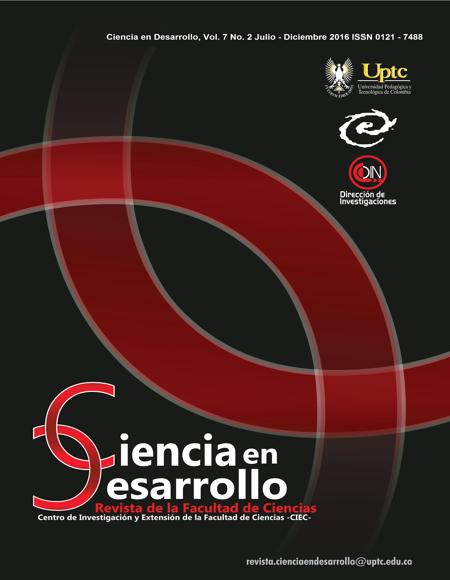The Transient and Asymptotic Moments for the Random Mission Time of a System / Los momentos transitorios y estables para el tiempo de misión de un sistema

Abstract
Abstract
In this paper, we study fault tolerant systems having one or more components and its system availability
over the random mission time. The mission time is the time that elapses since the initial operation of
the system until its cumulative working time achieves a predetermined fixed time. The main objective of
this paper is to obtain the transient and asymptotic moments for the random mission time of the system
availability subject to failures, as well as its distribution function, by using the theory of link travel time
distributions. A numerical example is presented to show usefulness of the proposed model.
Resumen
En este artículo se estudian sistemas tolerantes a fallas con uno o más componentes, y su disponibilidad durante el tiempo aleatorio de misión. El tiempo de misión es aquél que transcurre desde la operación inicial del sistema hasta que su tiempo acumulado de trabajo alcanza un tiempo fijo predeterminado. El objetivo principal del artículo es la obtención de los momentos transitorios y estables del tiempo de misión de la disponibilidad del sistema sujeto a fallas, así como el análisis de su función de distribución, mediante el uso de la teoría de las distribuciones de tiempo de viaje de un móvil, que transita por un número finito de caminos, en los que la velocidad promedio del móvil varía de camino a camino. Un ejemplo numérico se presenta para mostrar la utilidad del modelo propuesto.
Keywords
Mission time, cumulative up-time, transients moments, asymptotic moments
Author Biography
Alvaro Calvache Archila
Docente de Matemáticas - UPTC
References
- V. Arunachalam, A. Calvache, and A. Tansu, “Some Useful Approximations for the Availability Function”, International Journal of Reliability, Quality and Safety Engineering, vol. 22, pp. 155008 1 155008 15, 2015. DOI: https://doi.org/10.1142/S0218539315500084
- V. Arunachalam, S. Dharmaraja, “Fluid Queue Driven by Finite State Markov Processes”, Ciencia en Desarrollo, vol. 5, no. 2, pp. 79- 86, 2014. DOI: https://doi.org/10.19053/01217488.3662
- D.S. Berry, and D.M. Belmont, “Distribution of Vehicle Speeds and Travel Times”, Proceedings of the Second Berkeley Symposium on
- Mathematical Statistics and Probability, pp. 589-602, 1951.
- L. Blanco, V. Arunachalam, and S. Dharmaraja, “Introduction to Probability and Stochastic Processes with Applications”, Wiley, New Jersey, 2012.
- M. Chen, and S. Chien, “Dynamic freeway travel time prediction using probe vehicle data: Link-based vs. Path-based”, Transportation Research Record, vol. 1768, pp. 157-161, 2001. DOI: https://doi.org/10.3141/1768-19
- M. D’Angelo, H.M. Haitham, and M.C. Wang, “Travel-time prediction for freeway corridors”, Transportation Research Board, vol. 1676, pp. 184-191, 1999. DOI: https://doi.org/10.3141/1676-23
- E. De Souza e Silva, and H. R. Gail, “Calculating Cumulative Operational Time Distributions of Repairable Computer Systems”, IEEE, Transactions on Computers vol. 35, pp. 322- 332, 1986. DOI: https://doi.org/10.1109/TC.1986.1676765
- L. Donatiello, and B. Iyer, “Closed-Form solution for system availability distribution”, IEEE, Transactions on reliability, vol. 36, pp. 45-47, 1987. DOI: https://doi.org/10.1109/TR.1987.5222291
- A. Goyal, and A.N. Tanwani, “A measure of guaranteed availability and its numerical evaluation”, IEEE Transactions on Computers vol.
- , pp. 25-32, 1988. DOI: https://doi.org/10.1039/ap9882500032
- J. Kharoufeh, and N. Gautam, “A fluid queueing model for link travel time moments”, Naval Research Logistics Quarterly, vol. 51, pp. 242- 257, 2004. DOI: https://doi.org/10.1002/nav.10114
- J. Kharoufeh, and N. Gautam, “Deriving Link Travel-Time Distributions via Stochastic Speed Processes”, Transportation Science, vol. 38, pp. 97-106, 2004. DOI: https://doi.org/10.1287/trsc.1030.0048
- L. A. Molano, “Interpolación polinomial, algunas técnicas y su programación”, Ciencia en Desarrollo, vol. 4, no. 1, pp. 43-69, 2012. DOI: https://doi.org/10.19053/01217488.476
- D. Roden, “Forecasting Travel Time”, Transportation Research Record, vol. 1518, pp. 7-12, 1996. DOI: https://doi.org/10.1177/0361198196151800102
- G. Rubino, and B. Sericola, “Interval availability analysis using operational periods”, Perfomance Evaluation, vol. 14, pp. 257-272, 1992. DOI: https://doi.org/10.1016/0166-5316(92)90008-5
- B. Sericola, “Closed-Form solution for the distribution of the total time spent in a subset of states of a homogeneous Markov Process during a finite observation period”, Journal of Applied Probability, vol. 27, pp. 713-719, 1990. DOI: https://doi.org/10.2307/3214555
- L. Vanajakshi, S.C. Subramanian, and R. Sivanandan, “Travel time prediction under heterogeneous trafic conditions using global positioningsystem data from buses”, Intelligent Transport Systems, vol. 3, pp. 1-9, 2009. DOI: https://doi.org/10.1049/iet-its:20080013